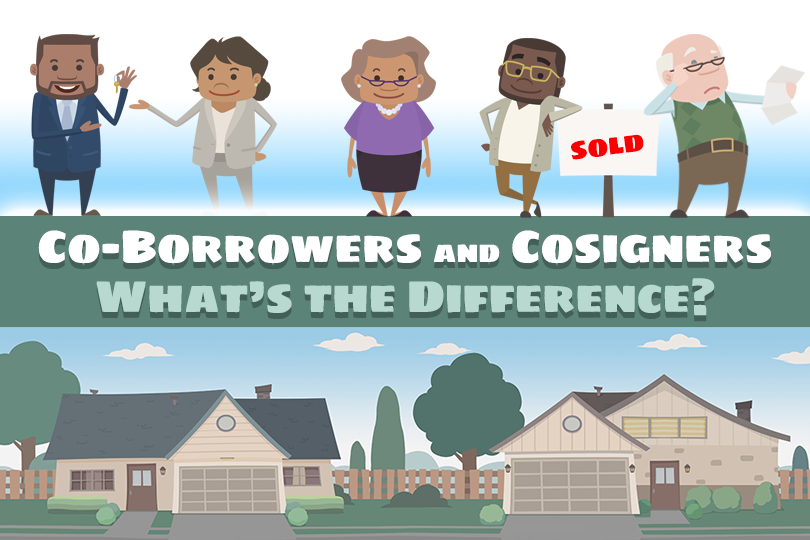Similarities and Differences Between Co-Borrowers and Cosigners
September 2, 2023
What Is a Co-Borrower?
A co-borrower is someone who is listed on the mortgage loan application alongside the primary borrower. They share equal responsibility for repaying the loan and are typically co-owners of the property being financed. During the loan application process they're required to by provide their income details, credit history, and other financial information to help meet the lender's qualification requirements.
Co-borrowers have a legal stake in the property and may have their names on the title and the mortgage documents. FHA loans allow for co-borrowers, including spouses or family members, to combine their incomes and credit profiles to qualify for a larger loan amount or to meet the lender's requirements.
What is a Cosigner?
A cosigner is not typically listed on the mortgage application but can be used in some cases to help the primary borrower qualify for an FHA loan. They're primary role is to provide additional assurance to the lender that the loan will be repaid, and do this by agreeing to assume responsibility for the loan if the primary borrower defaults.
Unlike co-borrowers, cosigners do not have a legal stake in the property being purchased. They don't own or have any rights to the property.
FHA loans are primarily underwritten based on the creditworthiness and financial situation of the primary borrower. In most cases, FHA loans require the borrower to meet the qualifications without the use of a cosigner.
The Bottom Line
The key difference is that a co-borrower is directly involved in the mortgage application, shares equal responsibility for the loan, and has a legal stake in the property, while a cosigner is not directly listed on the application, does not have ownership rights in the property, and provides additional assurance to the lender without being financially involved to the same extent as a co-borrower.
FHA loans are more commonly associated with co-borrowers rather than cosigners, but lending guidelines can vary if a family member is involved. Check with the specific lender for their policies regarding co-borrowers and cosigners on FHA loans.

FHA Loan Articles
January 15, 2025Buying a condo with an FHA loan is an option some don’t consider initially, but it’s worth adding to your list of potential property types. FHA loans for condo units traditionally require condo projects to be on or added to the FHA-approved list. Still, changes in policy over the years allow borrowers to apply for FHA loans on condo units in projects not on the list on a case-by-case basis.
December 30, 2024When applying for an FHA loan, lenders will consider more than just your credit scores and history. They also look at other factors affecting your risk profile and the interest rate they offer you.
One factor is occupancy type. For FHA loans, this is straightforward because these loans require owner occupancy. Investment properties aren't eligible. While conventional loans may have different rates for primary residences, second homes, and investment properties, this isn't a concern with FHA loans.
December 18, 2024Did holiday spending get the better of you? Are you looking for ways to recover your spending plan as you search for a new home?
The holidays are a whirlwind of festivities, family gatherings, and gift-giving. But amidst the cheer, it's easy to lose track of spending. If you're aiming to buy a home in the near future, those extra expenses can have a bigger impact than you might realize, especially if you're considering an FHA loan.
December 17, 2024The Federal Housing Administration provides mortgage insurance on loans made by FHA-approved lenders, making homeownership more attainable for those who might not qualify for conventional loans.
While financial factors like credit score and debt-to-income ratio are key to loan approval, other non-financial aspects can also cause a denial.
December 11, 2024FHA loans, insured by the Federal Housing Administration, are a popular choice for many homebuyers, especially those who need a lower downpayment or more forgiving credit qualifying requirements. FHA loans are primarily intended for primary residences—homes that borrowers will occupy as their main dwelling.







